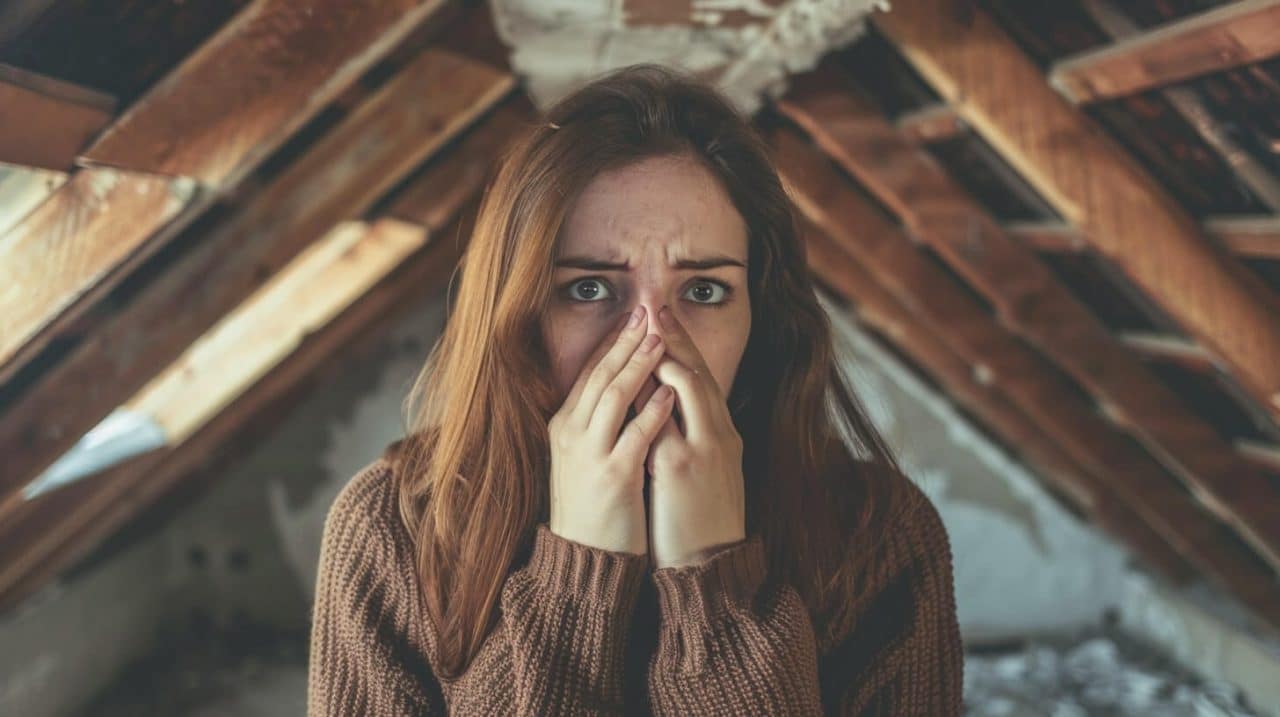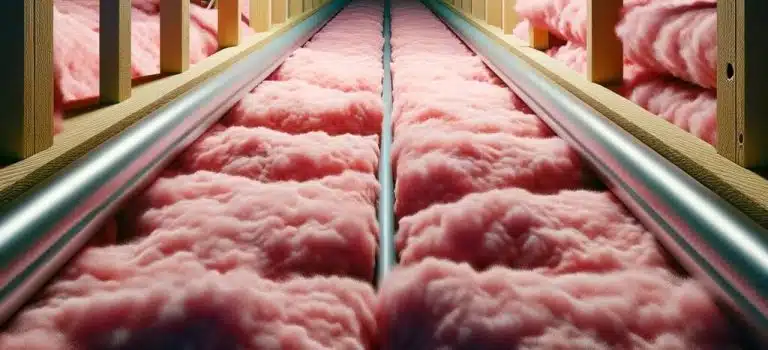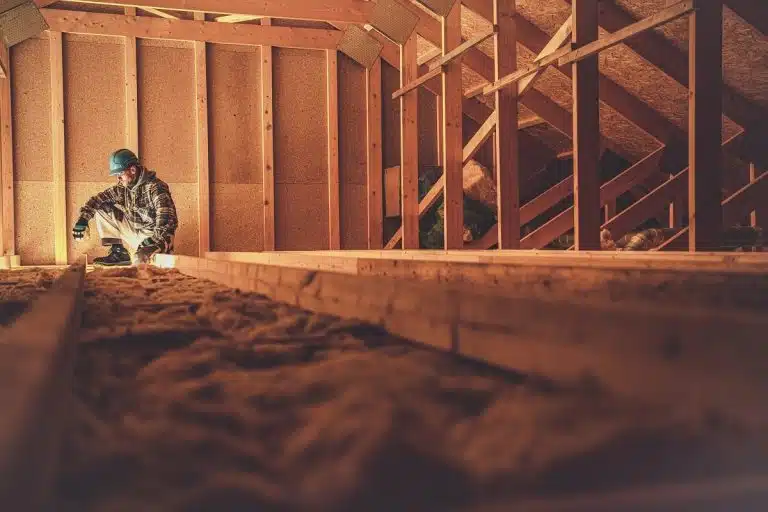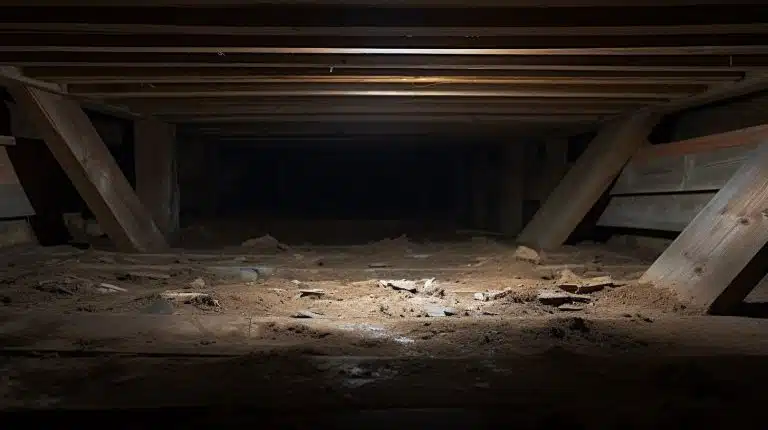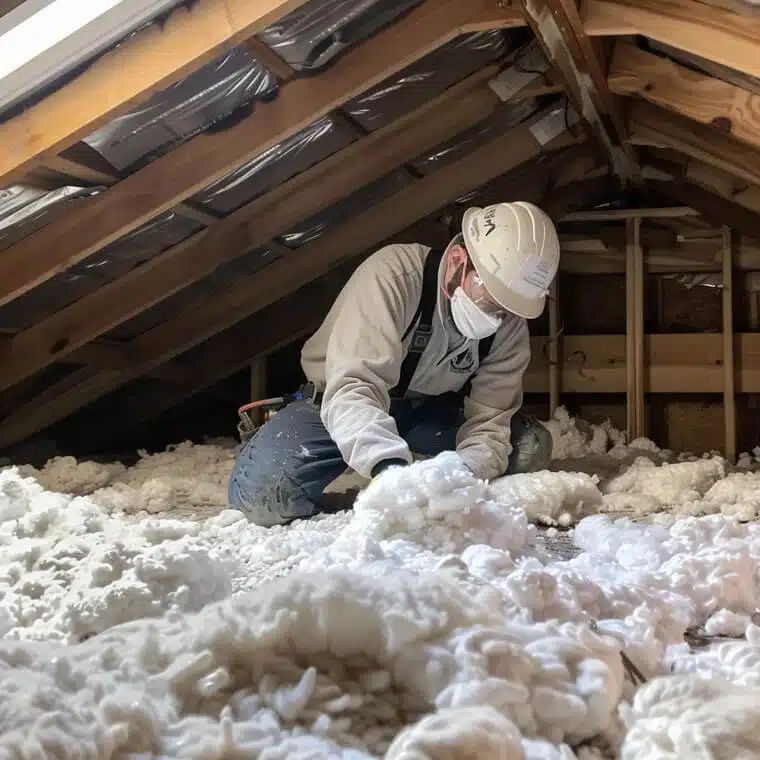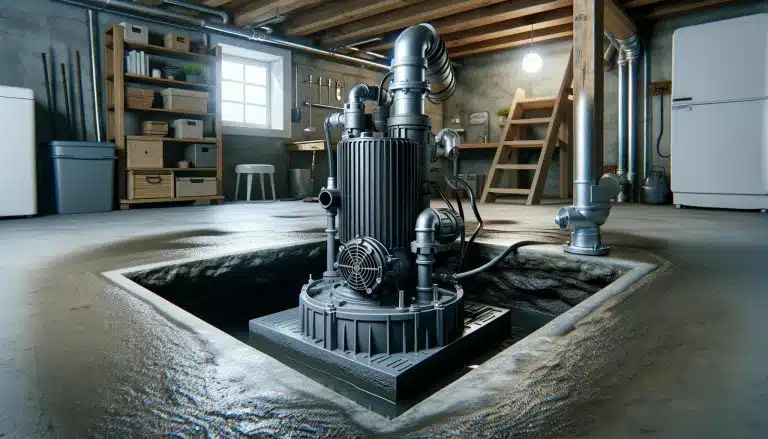You know that feeling when you climb up to your attic and you’re hit by a musty, unpleasant odor or a pungent nasty smell? It’s enough to make you want to turn around and head back downstairs.
The truth is, a musty attic smell in a house can be a real problem. Not only does it make your home feel less comfortable, but it’s also not something you want to deal with on a hot summer day when the air conditioner is blasting away.
So what can you do about it? First, you need to know where it’s coming from. Read on to find out what causes a musty smell in the house!

Where’s That Musty Smell in the Attic Coming From?
Attic smells can be musty, pungent, or even rancid. They can even get you to wonder, ‘Why does my house smell like a fart?.
They can also be difficult to identify, which can make them even more frustrating.
If you’re trying to figure out what’s causing the smell in your attic, here are some things to look for.
Mold and Mildew
Various types of mold and mildew grow in damp and humid environments. Attics can be particularly susceptible to mold and mildew growth because they are often poorly ventilated and can accumulate moisture from various sources, causing an unpleasant smell from the attic on hot days.
Some common sources of moisture in attics are:
- Leaky roofs or windows
- Poorly insulated walls or floors
- Condensation from HVAC systems or water heaters
- Poorly installed or malfunctioning exhaust fans
When moisture accumulates in attics, it creates an ideal environment for mold and mildew to thrive. This will not only cause unpleasant smells but can also pose health risks to individuals.
Pests
Pests can be a common reason why an attic smells musty. When pests such as rodents, bats, or birds make their way into your attic, they can leave behind droppings, urine, and other waste materials that emit strong, unpleasant odors.
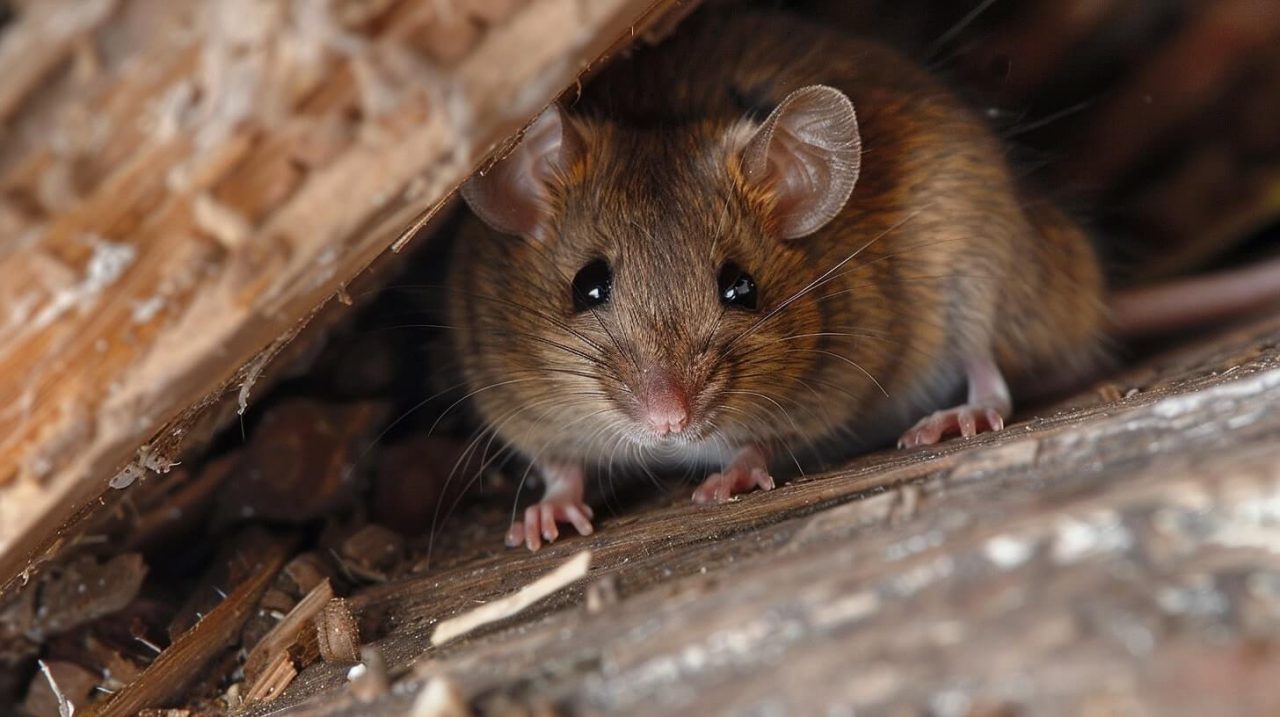
Over time, these odors can become more and more pronounced, making your attic an unpleasant and potentially hazardous place to be.
For this reason, it is worth taking every possible step to avoid these home-destroying animals getting into your attic. The most recommended way is to call for a specialist to apply effective pest control solutions.
Decaying Organic Matter
If you notice a foul, rotting attic smell coming through the vent, it may be due to decaying organic matter.
This type of matter can come from things like dead animals or plants that have been left to decompose. They can also come from rotten insulation or padding that’s been sitting in your attic for years, old boxes and paper products, and even food wastage or garbage that’s been left in the attic.
How to Get Rid of the Attic Smell: Effective Strategies For Eliminating Unwanted Odors
There are two things you can do once you discover a sudden musty smell in your house. You could either order a professional attic cleaning service or try to fix it yourself first.
So, if you’re DIY-inclined, here are some great tips on how you can get rid of an attic smell.
Clean and Deodorize
One of the easiest ways to remove a musty attic smell is to clean and deodorize the space. Sweep or vacuum the floors, and wipe down any surfaces with a mild cleaning solution.
You can also use an odor-neutralizing spray or natural remedies such as vinegar or baking soda to remove stubborn attic smells. Be sure to wear protective gear such as gloves and a mask, especially if you suspect mold or mildew growth.
Remove Moisture
Excess moisture can not only cause an unpleasant attic smell in your house but can also lead to the growth of harmful mold and mildew.
To get rid of attic condensation, you should first identify any leaks or sources of water intrusion and address them promptly.
You can also improve ventilation in your attic by installing attic vents and ensuring that they are not blocked by insulation.
Eliminate Pests
If pests are the cause of the odor, it’s crucial to remove them promptly and take steps to prevent them from returning.
Consider using humane traps or calling a pest control professional to remove mice or other rodents or insects. Seal any entry points to prevent pests from returning, and consider using deterrents such as essential oils or ultrasonic devices to discourage future infestations.
Stop the Stink Before It Starts: Tips for Preventing a Musty Smell in the Attic
With a little effort, you can keep your attic smelling fresh and clean year-round. So, here are some tips on how to prevent the attic smell.
Clean and Organize Your Attic
Cleaning and organizing your attic can help keep away bad smells and prevent the accumulation of dust, debris, and other materials that can contribute to a musty smell in the attic. You can try to do it yourself or schedule a professional attic cleaning that will save you time and ensure the best results.

Remove any items that you no longer need or use, and donate, sell, or dispose of them appropriately. This will create more space in your attic and reduce the amount of clutter that can contribute to bad smells.
Then, give your attic a thorough clean. You should vacuum and dust the floor, walls, and ceiling. You may also want to wipe down surfaces with a disinfectant or mildew remover to eliminate any mold, dirt, or debris that has accumulated on them.
In addition to this, make sure you use storage containers to store items in your attic. This will not only help keep your items organized but will also help protect them from dust, debris, and other materials that can contribute to bad smells.
Choose storage containers that are airtight to prevent odors from escaping and to keep your items fresh.
Ensure Proper Ventilation
Proper ventilation in the attic can help to remove stale attic smells that may accumulate over time. You can do this by installing an exhaust fan in the ceiling or air vents on the walls.
This will allow you to control airflow within your attic and prevent mold and mildew from growing. In addition to this, make sure that you regularly clean out any ductwork that runs through your attic space so that it doesn’t become clogged with dust and debris.
Ensure Proper Insulation
Proper insulation in your attic can go a long way in preventing the accumulation of moisture and the growth of mold and mildew, which can contribute to unpleasant odors.
Choosing the best attic insulation can also help regulate temperature and humidity levels in your attic, which can further prevent the growth of mold and mildew.
Insulation can also help to prevent outside air and pollutants from entering your attic, which can reduce the likelihood of a musty attic smell caused by outdoor sources.
It’s important to ensure that your insulation is installed properly and is in good condition to effectively control moisture and airflow. Calling experts offering attic insulation installation services is the best way to ensure its proper functionality, as they have the right knowledge and tools to do it correctly.
Use an Air Purifier
Air purification can help remove an unpleasant attic smell in your house and improve air quality in your home.
Use an air purifier with a HEPA filter, short for “high-efficiency particulate arrestance,” it’s the type of filter that most experts recommend to capture particles such as mold spores, pet dander, and other allergens.
Seal Entry Points
Sealing entry points can help prevent pests from entering your attic and causing odors. Seal any gaps or cracks in walls, floors, or ceilings, and consider installing screens over vents or windows to prevent pests from entering.
What Can Cause a Musty Smell In the House – Final Thoughts
A musty attic smell coming through the vent can be a nuisance and a health hazard. It is important to understand the causes of these smells and take proactive measures to prevent them.
